The Ultimate Beginner's Guide to Understanding SEO
Understanding SEO might initially seem complex but think of it as a step-by-step construction process. Each element you master – keywords, quality content, technical optimization – acts as a building block, creating a strong and visible online presence. Ready to start building the foundation of your website's success?
Search Engine Optimization (SEO) Basics
Let's kick things off by breaking down the basics of SEO tools and Google Search Console. SEO stands for Search Engine Optimization. Think of it as the seasoning that makes your website more appetizing to search engines like Google. Implementing SEO techniques can boost your website's visibility and attract more organic traffic.
What are the best SEO tools?
Now that we've covered the fundamentals of SEO, let's explore a crucial aspect of optimizing your website: utilizing the right tools to streamline your efforts and maximize results. Just as a master chef relies on quality utensils to create culinary masterpieces, an SEO expert harnesses the power of specialized tools to enhance their digital presence.
Whether you're a seasoned SEO veteran or just dipping your toes into the digital waters, the abundance of tools available can be overwhelming. Let's explore some of these SEO tools.
Neuron Writer: With features like content generation, topic research, and SEO analysis, Neuron Writer enables users to produce high-quality content that ranks well in search engines and captivates their audience.
Ubersuggest: Developed by digital marketing expert Neil Patel, Ubersuggest is a versatile SEO tool that offers a wide range of features for keyword research, content optimization, and competitor analysis.
Ahrefs: Renowned for its comprehensive suite of SEO tools, Ahrefs is a powerhouse when it comes to backlink analysis, keyword research, and competitor analysis.
SEO Tools Categories
Another essential factor is server response time. If your server is slow, your whole site will be slow.
For mobile page speed, server response time is an important factor. If your server cannot handle the requests promptly, the whole website will suffer and load slower than it should. To ensure your mobile page speed is up to par, ensure your web host or server can handle the expected traffic you'll amass when launching your mobile site. There are various hosting solutions available, so research until you find one that works well for you and your mobile page requirements.
Blog Post Checklist
Start making money online with organic search traffic

Google Search Console
Google Search Console is like having a direct line to Google, the kingpin of search engines. It gives you a behind-the-scenes look at how your website performs in Google's search results. With this SEO tool, you can see which of your pages are showing up in search, how often they're clicked on, and even if any technical issues might be holding your site back.
But that's not all – Google Search Console also lets you submit your sitemap, which is like giving Google a roadmap to all the pages on your site. This helps Google crawl and index your site more effectively, ensuring that your content gets discovered and ranked accurately.
Another handy feature of Google Search Console is the ability to spot and fix any errors that might be affecting your site's performance. Whether it's broken links, crawl errors, or issues with mobile-friendliness, this tool alerts you to potential problems so you can address them promptly and keep your site running smoothly.
But perhaps the most valuable aspect of Google Search Console is its ability to provide insights into what people are searching for when they find your site. By analyzing search queries, impressions, and click-through rates, you can gain valuable insights into your audience's preferences and tailor your content to better meet their needs.
In essence, Google Search Console is like having a personal SEO assistant, helping you fine-tune your website for maximum visibility and impact in the world of search.
Why is SEO important?
So you explored these SEO tools, but why is this Search Engine Optimization really important? Should you just take this for granted and move on?
The answer is no, especially if you want to take advantage of the online world and be the brand that people search for. What if you're only trying to build your brick-and-mortar store? Well, there's this thing called Local SEO that will surely help your brick-and-mortar be the talk of the town.
So overall, here are other reasons why SEO is important.
Visibility and Traffic
In today's digital landscape, where billions of searches are conducted daily, appearing at the top of search engine results pages (SERPs) can significantly increase your website's visibility and drive organic traffic.
Credibility and Trust
Studies have shown that users tend to trust websites that appear at the top of search results more than those that are buried on subsequent pages.
Cost-Effectiveness
Compared to traditional advertising channels such as print or TV ads, SEO offers a highly cost-effective way to reach your target audience. While it requires an upfront investment of time and resources to optimize your website, the long-term benefits can far outweigh the initial costs.
Competitive Advantage
In today's competitive online marketplace, having a strong SEO strategy can give you a significant edge over your competitors.
User Experience
A key aspect of SEO is optimizing your website for user experience. This involves ensuring fast page load times, easy navigation, and mobile responsiveness – factors that not only improve your search rankings but also enhance the overall user experience.
Help Google find your content
Making sure Google can find your content is super important in today's online world. Think of Google as a big map that helps people find what they're looking for on the internet. If your content isn't on Google's map, it's like it doesn't exist for millions of people searching online. That's where SEO work comes in – it's like giving Google directions to your content so it can show it to the right people and bring traffic to your website.
By using the right words and making your website easy to use, you can make sure Google sees your content and helps people find it when they search. So, if you want more people to see your stuff online, it's key to focus on making Google notice it.
The Ingredients of SEO Success
Now that you have an idea of what SEO is all about, let's explore the key ingredients that make up a well-optimized website.
Keyword Research: Laying the Foundation
Keywords are the breadcrumbs that lead search engines to your website. This is where all the SEO efforts begin. Strategically incorporating relevant keywords into your website's content helps search engines understand what your site is all about.
Content Creation and Understanding Search Intent
Building the Structure - Content is the main course of any successful SEO strategy. Serving up high-quality, relevant content not only keeps visitors coming back for seconds but also signals to search engines that your site is a valuable resource worth ranking.
Links: Enhancing Your Website's Authority
Think of links as the seasoning that adds flavor to your website's authority. Earn backlinks through guest blogging, online communities, and social media to enhance your site's credibility and improve its ranking.
Meta Tags: Your Website's Appetizer
Optimize your meta title or title tag and meta description to boost click-through rates.
Schema Markup: Providing the Extra Details for Enhanced Search Engine Results Pages
Schema markup adds structured data to your website's code, helping search engines better understand your content, which is a vital aspect of technical SEO. This can lead to more informative search results.
Improving your SEO Skills: Where to Learn SEO?
Improving your SEO skills is a fantastic idea for anyone looking to make a mark in the digital world. But where can you learn SEO? Here are a few options:
Online Courses
Websites like Coursera, Udemy, and LinkedIn Learning offer a wide range of SEO courses for beginners to advanced learners. These courses cover everything from the basics of SEO to more advanced strategies and techniques.
Free Resources
Many blogs, websites, and YouTube channels offer free resources and tutorials on SEO. Some popular ones include Moz's Beginner's Guide to SEO, Neil Patel's blog, and the Backlinko blog.
SEO Communities
Joining online communities and forums dedicated to SEO can be a great way to learn from others in the field. Websites like Reddit (r/SEO), Moz Community, and Warrior Forum have active communities where you can ask questions, share insights, and learn from others' experiences.
Books
There are many books available on SEO written by experts in the field. Some popular ones include "SEO 2021: Learn Search Engine Optimization with Smart Internet Marketing Strategies" by Adam Clarke and "The Art of SEO" by Eric Enge, Stephan Spencer, and Jessie Stricchiola.
Networking
Networking with other professionals in the industry can also be a valuable way to learn SEO. Attend industry events, webinars, and conferences to connect with others in the field and learn from their experiences.
Remember, SEO is a constantly evolving field, so it's essential to stay up-to-date with the latest trends, updates, and best practices. By continually learning and experimenting with different strategies, you can sharpen your SEO skills and drive better results for your website or business.
Organic Search Visibility Basics
Here's a step-by-step recipe for SEO success:
Keyword Research: Identify the keywords your target audience is searching for using tools like Google Keyword Planner and SEMrush.
On-Page Optimization: Incorporate keywords, reflective of search intent, naturally throughout your content. Optimize your meta tags and image alt text.
Content Creation: Create valuable content (blog posts, videos, infographics, etc.) that addresses your audience's needs.
Link Building: Build a strong backlink profile to boost authority.
Technical SEO: This involves optimizing the technical aspects of your website to improve its search engine visibility and user experience.
Paid Search vs. Organic Search - The Differences and Similarities
Paid search and organic search are two primary methods of driving traffic to a website through search engines, but they have key differences and similarities.
Differences:
1. Cost: The most significant difference is that paid search involves paying for advertising space on search engine results pages (SERPs), while organic search traffic is free.
2. Placement: Paid search results typically appear at the top and bottom of SERPs, marked as ads. Organic search results, on the other hand, appear below paid ads and are based on the search engine's algorithm's relevance to the user's query.
3. Speed: Paid search campaigns can drive traffic to your website almost immediately after launching, as long as you're willing to pay for clicks. Organic search traffic, however, can take time to build up as you optimize your website and create high-quality content that ranks well in search results.
Similarities:
1. Purpose: Both paid search and organic search aim to drive traffic to a website by appearing in search engine results. They both target users who are actively searching for information, products, or services related to specific keywords or queries.
2. Keyword Targeting: Both methods rely on keyword targeting to reach the desired audience. Paid search campaigns allow advertisers to bid on specific keywords to trigger their ads, while organic search optimization involves optimizing website content for relevant keywords to improve rankings in organic search results.
3. User Intent: Whether a user clicks on a paid ad or an organic search result, their intent is the same – to find relevant information, products, or services related to their query. Both paid and organic search aim to fulfill this user intent by providing valuable and relevant content.
A comprehensive digital marketing strategy often incorporates both paid and organic search tactics to maximize visibility, reach, and effectiveness in driving targeted traffic to a website.
How to Monitor & Track SEO Results
Monitoring and tracking SEO results is crucial to understand the effectiveness of your efforts and make data-driven decisions to improve your website's performance. Here's how you can do it effectively.
Use Analytics Tools
Google Analytics is a powerful tool that provides insights into your website's traffic, user behavior, and conversions. It allows you to track key metrics such as organic traffic, bounce rate, average session duration, and goal completions. Set up goals and conversion tracking to measure the impact of your SEO efforts on specific actions, such as form submissions or purchases.
Track Keyword Rankings
Monitor your website's performance in search engine results pages (SERPs) by tracking keyword rankings. Tools like SEMrush, Ahrefs, and Moz offer keyword-tracking features that allow you to monitor your website's rankings for target keywords over time. Keep an eye on changes in rankings to identify trends and opportunities for improvement.
Monitor Backlinks
Backlinks are an essential aspect of SEO, as they signal to search engines that your website is credible and authoritative. Use tools like Ahrefs, Majestic, or Moz to monitor your website's backlink profile and track new backlinks acquired over time. Monitor the quality and relevance of backlinks to ensure they contribute positively to your website's SEO efforts.
Track Organic Traffic Trends
Monitor trends in organic traffic to your website over time to gauge the impact of your SEO efforts. Use Google Analytics to track changes in organic traffic, comparing data over different periods to identify patterns and fluctuations. Pay attention to seasonality, marketing campaigns, and algorithm updates that may influence organic traffic.
Monitor Technical Issues
Regularly audit your website for technical issues that may affect its performance in search engines. Use tools like Google Search Console to identify crawl errors, indexation issues, and mobile usability issues that may hinder your website's SEO. Address technical issues promptly to ensure optimal performance and visibility in search results.
Track User Engagement Metrics
Monitor user engagement metrics such as click-through rate (CTR), dwell time, and pages per session to assess the relevance and effectiveness of your website's content. Use Google Search Console and Google Analytics to track CTR for specific search queries and landing pages, and optimize meta tags and content to improve CTR and user engagement.
Monitor Competitor Performance
Keep an eye on your competitors' SEO performance to benchmark your website against industry standards and identify areas for improvement. Use tools like SEMrush, Ahrefs, or SpyFu to analyze competitors' keyword rankings, backlink profiles, and content strategies, and adjust your SEO strategy accordingly.
Conclusion
SEO is an ongoing process that requires patience and persistence. Stay focused, keep refining your approach, and soon enough, you'll be feasting on the sweet rewards of your efforts.
Understanding SEO is about finding the right ingredients, following the recipe, and savoring the delicious results. By incorporating keywords, serving up valuable content, building links, and optimizing your website, you can create a winning SEO strategy that drives traffic, boosts visibility, and ultimately leads to online success.
I would love to help you optimize your website and increase your search engine rankings by teaching you how to generate traffic to your online business by leveraging search engines like Google, Bing, and Yahoo! Contact me.
Blog Post Checklist
Start making money online with organic search traffic





